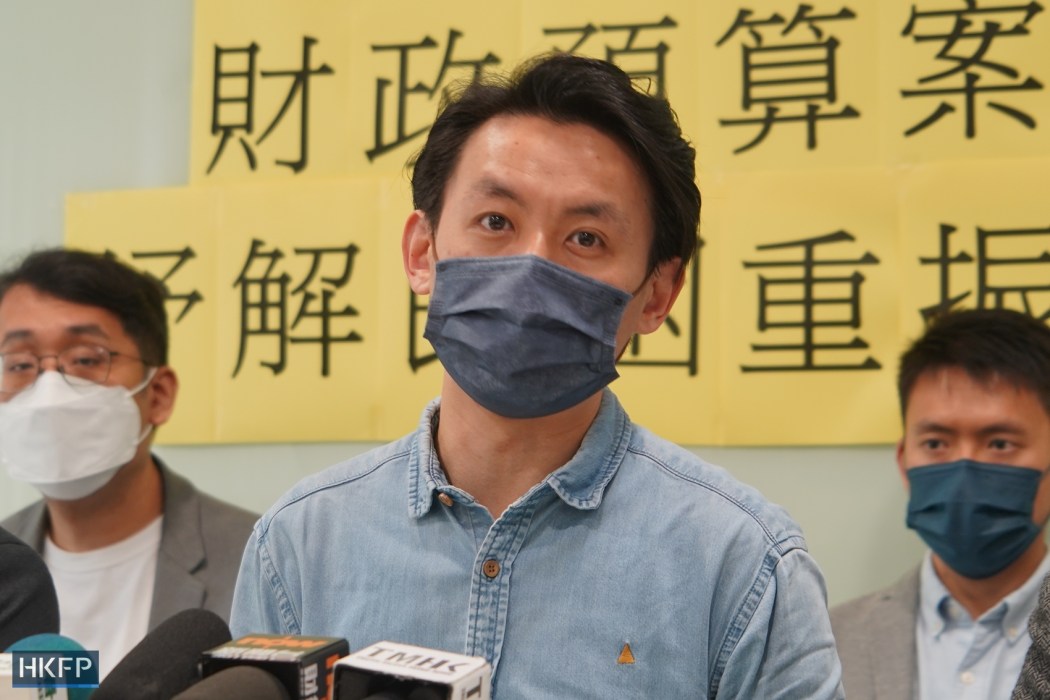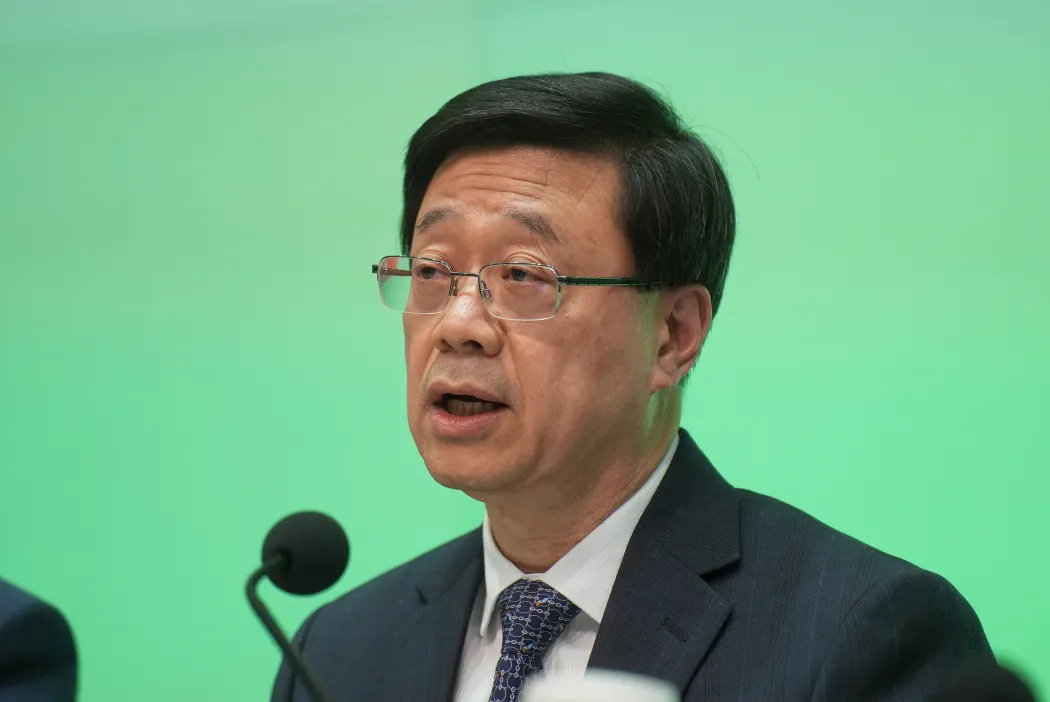The government’s plan to slash the number of democratically elected seats in District Councils is “very disappointing,” Hong Kong’s Democratic Party chief has said.

Lo Kin-hei, chair of the city’s largest pro-democracy party, said on Tuesday that he had low expectations regarding the reforms, but the announcements were “even worse” than what he had envisioned.
“The connection between the District Councils and citizens will be less than before, and that’s not a good sign for the District Councils. Because the District Council should be a body to recommend the government [about] how to do better, to actually watch how the governments performs in the district,” Lo said.
“[Now] it is the government watching the District Council [and] how they perform. So it’s the other way round.”
Chief Executive John Lee announced at a press conference earlier on Tuesday that the District Council polls will be reformed in order to prevent people from “hijacking, manipulating [and] paralysing” the local district bodies. The pro-democracy camp saw a landslide victory during the last District Council polls in 2019, held amid the anti-extradition bill protests and unrest.
Currently, besides the 27 seats reserved for rural committee chairmen who represent indigenous villagers, all of the District Council seats – totalling 479 – are elected by the public.
Following the overhaul, the number of publicly elected seats will be slashed to 88 upon legislative approval. Another 179 seats will be appointed by the chief executive – a system that was previously abolished in 2016.
The rest of the 176 seats will be produced through elections within three small-circle committees, namely the District Fight Crime Committees, District Fire Safety Committees and Area Committees. The members of each committee are chosen by the government’s Home Affairs chief.
See also: Democratically-elected seats to be slashed to 20% for local Hong Kong elections; candidates vetted
Candidates must also secure at least three nominations from each of the three committees, on top of nominations from voters in their own constituencies.

The election constituency boundaries will be redrawn, allowing two representatives to be elected in each constituency, while each voter may only vote for one candidate. The total number of constituencies will be reduced from 452 to 44.
“The black riots and Hong Kong version of a colour revolution in 2019 were a warning for Hong Kong,” Lee said. “We must plug all the loopholes in the system to prevent the District Councils from again becoming a platform for [advocating] black riots, Hong Kong independence and mutual destruction.”

Candidates will also have to undergo background checks to ensure only “patriots” govern Hong Kong, a principle laid out by Beijing when they overhauled the city’s electoral system in 2021.
‘Top down’ rule
The District Council term, which runs for four years, will expire at the end of this year. Polls are typically held in November, although no election date has been set yet.
In addition to changes in the make-up of the District Councils, the new local bodies produced through the reforms will be chaired by District Officers, a government official under the Home Affairs Department. The system is similar to arrangements during the colonial era.
Under the current system, the chairperson is elected by District Council members.
Lo said District Officers, as officials who rotate through different positions in different government departments, would not be familiar with issues in a local district.
“It would be top-down instead of bottom-up. In the future… whatever the government wants to do, they can do it through the District Officer,” he added.
Lo said the party was discussing whether they would send members to run in the District Council elections, a decision that would factor in whether they would be able to receive the required nominations.
Support HKFP | Policies & Ethics | Error/typo? | Contact Us | Newsletter | Transparency & Annual Report | Apps
Help safeguard press freedom & keep HKFP free for all readers by supporting our team

LATEST FROM HKFP
HKFP has an impartial stance, transparent funding, and balanced coverage guided by an Ethics Code and Corrections Policy.
Support press freedom & help us surpass 1,000 monthly Patrons: 100% independent, governed by an ethics code & not-for-profit.











